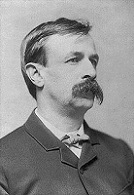We welcome all delegations who have an interest in creating a new standard currency, which we tentatively call the Terran Monetary Unit, to Kaliburg Polytechnic University. When we get started with the conference, I intend to lay out the issues with the current standardization model, to describe why it will be the world's benefit to adopt a new standard to evaluate our currencies against. I will also propose a structure for the nations of the world to evaluate their own currencies, including some suggestions for evaluation, and finally a system to determine the value of currency for non-player countries.
All discussions will be IC, but of course we will need to switch back and forth between IC and OOC when we refer to things like USD. This is a loose convention. The goal is to build something where all delegates have buy in and no nation is advantaged over any other. The TMU, to be accepted and adopted community wide, should be a product of the community.
With this, as a representative of Her Imperial Majesty's Government, I will welcome you all to the Kaliburg Conference. We'll wait till all those who want to participate are seated.
Kaliburg Conference on the Terran Monetary Unit
21 posts • Page 1 of 3 • 1, 2, 3
Kaliburg Conference on the Terran Monetary Unit
The Honorable Bradley Marcuse, Her Imperial Majesty's Finance Minister, Empire of Ananto and Kalistan
Primary: Institutionalist Party of Kalistan (IPoK), 5146-
Inactive:
Socialist Party of Kalistan (SPoK), 2591-
Hizb Al'Sultan حزب السلطان 4543-4551
Parti des Frères Lourenne, 4109-4132
Gaduri Brethrenist Movement (MHdG), 4481-4485
Inactive:
Socialist Party of Kalistan (SPoK), 2591-
Hizb Al'Sultan حزب السلطان 4543-4551
Parti des Frères Lourenne, 4109-4132
Gaduri Brethrenist Movement (MHdG), 4481-4485
-

Doc - Posts: 2239
- Joined: Sun Jan 13, 2013 3:29 pm
- Location: Kaliburg, Kalistan
Re: Kaliburg Conference on the Terran Monetary Unit
Mashvadir Keshef, Deputy Head of the Olami Trade Association of the Ministry of Finance, Homeland State of Beiteynu
Greetings from Yishelem; the Homeland sends its representation to this endeavour.
- GreekIdiot
- Posts: 4889
- Joined: Tue Apr 07, 2009 1:46 pm
- Location: Beiteynu
Re: Kaliburg Conference on the Terran Monetary Unit
Finance Minister Dr. Maximilian Dame is going to represent the Dual-Republic.
We convey most friendly greetings from Bannerhafen and the whole administration of President Bouman, we thank her Imperial Majesty's government of Ananto and Kalistan for hosting and bringing this idea to the table.
"It looked like a silly semi-cliquey thing between a few players to me. Following around a troll called Mbites like he was some sort of god... which wouldn't have mattered so much in the scale of things, except one of them was a Mod."
-

Mbites - Posts: 807
- Joined: Sat May 07, 2016 11:15 am
Re: Kaliburg Conference on the Terran Monetary Unit
Dr. George Blankenship, Secretary of the Treasury, Commonwealth of Lodamun
The Secretary is joined by the following delegation:
The Commonwealth of Lodamun would like to thank the Empire of Ananto and Kalistan for organising this discussion. Like Kaliburg, we in Kensington view the adoption of a global monetary unit as of utmost importance.
The Secretary is joined by the following delegation:
- 1. Under Secretary for Global Affairs: Oliver Davenport
2. Chairman of the Federal Reserve Bank of Lodamun: Dr. Capria Bowman
3. Vice Chairman, Monetary Operations and Policy: Dr. Eleanor Atkins
- imperialpearl
- Posts: 1121
- Joined: Sat Nov 21, 2020 8:22 pm
Re: Kaliburg Conference on the Terran Monetary Unit
Finance Minister Toislav Brnetic, Veliko Carstvo Deltarije:
Veliko Carstvo Deltarije is attending and very much appreciates the invitation to this conference.
Neue Dundorfische Zentrumspartei (NDZP), Dundorf, Active
Federation Canrille (FC), Kanjor, Active
Dedicated to the proposition.
Federation Canrille (FC), Kanjor, Active
Dedicated to the proposition.
-

Drax - Posts: 2247
- Joined: Wed Apr 22, 2020 8:51 pm
- Location: Alabama, USA
Re: Kaliburg Conference on the Terran Monetary Unit
Finance Minister Toislav Brnetic, Veliko Carstvo Deltarije:
Veliko Carstvo Deltarije is attending and very much appreciates the invitation to this conference.
Neue Dundorfische Zentrumspartei (NDZP), Dundorf, Active
Federation Canrille (FC), Kanjor, Active
Dedicated to the proposition.
Federation Canrille (FC), Kanjor, Active
Dedicated to the proposition.
-

Drax - Posts: 2247
- Joined: Wed Apr 22, 2020 8:51 pm
- Location: Alabama, USA
Re: Kaliburg Conference on the Terran Monetary Unit
Tukarali Finance Minister António Vieira Silva arrives at the conference, accompanied by his assistants.
The People's Republic of Tukarali thanks the Empire of Ananto and Kalistan for organising this conference, as we believe it is a very important issue that needs to be addressed.
-

Paulo Nogueira - Posts: 24
- Joined: Thu May 24, 2018 9:41 pm
Re: Kaliburg Conference on the Terran Monetary Unit
The Honorable Bradley Marcuse, Her Imperial Majesty's Finance Minister, Empire of Ananto and Kalistan
As more delegations arrive, we will invite them to read the transcript of the proceedings this far.
First, Let me welcome you all to the Kaliburg Conference on the Terran Monetary Unit. At this conference, our goal is to work out any problems with a proposed unit of Currency that will stand as a benchmark for Terra.
I want to start with a few definitions, so we are all on the same page, and I want to encourage the use of this jargon throughout the conference
1) Universal Currency- I refer to a standard currency that all have equal and unfettered access to. This doesn't mean that we can all go take as much of it as we want. It means that there is no restriction to denominating local currencies in terms of the Universal Currency.
2) Local Currency- I refer to the currency of a given Nation. For example, the local currency of Kalistan is The Kalistani Ruble. The local currency of Lodamun is the Lodamese Dollar.
3) Convertibility- The ease with which one currency can be changed into another currency. A currency is considered universally convertible, and therefore will be more widely acceptable, if there are few or no barriers to ease of exchange. This includes external fees, which make trading in a foreign local currency more expensive than trading in a local currency native to the land one is in. Universal currency often suggests that it is less expensive to use a highly convertible foreign currency than it is to use the local currency. There are a number of factors that affect convertibility: One is volitility of a local currency. If there is no faith in the value of the local currency, it loses convertibility. Another is currency controls imposed by the Government. If it is going to cost me more money to denominate some trade in a foreign currency, it is less convertible than my own, and I will use my own. Conversely, if there are no barriers to convertibility, and the foreign currency is the stronger currency, I will rather make a trade in that currency because it will save me on transaction costs, finance costs, etc. Convertibility is accepting nation specific, but it is the result of issuing country's policies.
4) Transaction Costs- The costs of exchange. The nominal value of a currency is what it is worth on the market at a specific spot. (this is called the "spot price" of some commodity, and can affect the price of any commodity, whether it be gold, or currency, or pork). Most exchanges will sell currency at a mark up and buy currency at a markdown, meaning it will cost you, the buyer more to buy the currency than the Spot price, and you will make less than the spot price when you go to sell your currency. The difference between the markup/down and the Spot price of the currency is called "the transaction costs." Each trade denominated in a foreign currency has transaction cost that either the buyers or sellers of a good or service bear, depending on who has the upper hand in the transaction-- If you are buying something denominated in a foreign local currency, you will first have to convert your money to their currency, which will cost you money (because you want their currency) and then you will pay that to the seller. So it is in your interest to denominate trades in your own currency, because that doesn't have any transaction costs associated with the conversion (but see, then you put the seller at a disadvantage, because now they lose on the conversion back to their currency after the trade.) This increase or decrease in transaction costs will affect convertibility. If two currencies are equally convertible, the transaction costs are zero and the trade can go through at the value of the commodity alone. This is why high convertibility is desirable.
5) Strength or weakness of a currency- The value of one currency against compared to another. A strong currency maintains a stable value over a long period of time. You can generally use strong currencies to buy items denominated in weak currencies more easily. But strong local currencies have the draw back of making exports more expensive, so less domestic material is sold abroad. Weak currencies, on the other hand make exports more attractive, but your country has to spend more on imports, raising domestic prices of foreign goods. Strong currencies are often times more convertible than weak currencies. And the weakest currencies are ones nobody wants.
6) Volatility- The range that a local currency floats against a standard. A local currency with low volatility retains its value over time, and is generally considered a safer investment for those who want to own foreign currency. A local currency with a high volatility can be very strong one day, and very weak the next, which leads to price fluctuations, less certainty for businesses, lower investment in the economy, and also, makes the currency less convertible, because a person never knows if the local currency they hold today will be worth anything close to the same value tomorrow. High volatility in the value of a currency signified a currency crisis.
Convertibility is measured against a universal standard. In the real world, we use the USD, currently, as the standard. There are a number of reasons for this, but all said, you can generally spend USD world wide. You may bear a transaction cost for that, but USDs are very desirable, and so a lot of times, store owners will cut the price if you pay in USDs (because their own currency is less convertible. It is a business decision.)
In our Conference here, I propose a version of the USD for Terra. The currency should be
1) Universally convertible- It should be accepted everywhere.
2) Independent of any one nation's economy- This is how we have faith in the value of said currency, and can denominate local currencies in terms of the universal currency.
3) Float without regard to Terran Events- It should be based on an external standard, so nations cannot do events to affect the value of the universal currency, only local currencies.
Currently, the LOD has served for centuries as a proxy for the USD. But this is not accurate. There are a number of reasons why, but the biggest reason why the LOD should not be a proxy for the USD is that the LOD is not allowed to float against the USD. (As a matter of fact, I dare say that the creator of the game did not intend for any currency to float against the USD: He hard coded static values in.) This is a problem because
1) Lodamun has gone for centuries at a time in the past with nobody playing there. So why should it retain the status of single universal currency that all gave to denominate their local currencies in terms of?
2) It reduces the incentive to do anything to strengthen your own economy, because no matter what happens, 1 LOD always equals 1 USD, and there is no way to determine which currency is actually stronger, because LOD, by its association with the USD, is always treated as the Strongest.
3) The LOD should have the opportunity to float if the players in the country want it to, or peg to the USD if that is what the players there opt for. Just because Wouter didn't include a currency calculator, doesn't mean we haven't been using one in one form or another for years, IG. First Siggon created one based on Wouter's hard coded values, and then I modified it to allow for the values to float based on Dynamic rankings. But as long as LOD=USD, in game, it really didn't matter what Lodamun's dynamic ranking was, we were always going to express values in terms of LODs.
This is not to knock the LOD, or Lodamun, in any way. We merely wish to create a synthetic, universal standard that even the LOD can float against, first to clarify the values of local currencies expressed in universal currency units, and second, to actually express local currencies in terms of one another. This second is the most important goal, and I think is one which is key for game play.
With that I open the floor to initial comments and thoughts, before we get into the proposal for the TMU.
Primary: Institutionalist Party of Kalistan (IPoK), 5146-
Inactive:
Socialist Party of Kalistan (SPoK), 2591-
Hizb Al'Sultan حزب السلطان 4543-4551
Parti des Frères Lourenne, 4109-4132
Gaduri Brethrenist Movement (MHdG), 4481-4485
Inactive:
Socialist Party of Kalistan (SPoK), 2591-
Hizb Al'Sultan حزب السلطان 4543-4551
Parti des Frères Lourenne, 4109-4132
Gaduri Brethrenist Movement (MHdG), 4481-4485
-

Doc - Posts: 2239
- Joined: Sun Jan 13, 2013 3:29 pm
- Location: Kaliburg, Kalistan
Re: Kaliburg Conference on the Terran Monetary Unit
Toislav Brnetic, Deltarian Finance Minister:
Deltaria is certainly in favor of doing something.
Understand that floating of the universal currency will be RL US $1 which of course does float a lot.
Do you anticipate a mechanism for actual changes in value of local currencies based on things in RP compared to other local currencies?
Neue Dundorfische Zentrumspartei (NDZP), Dundorf, Active
Federation Canrille (FC), Kanjor, Active
Dedicated to the proposition.
Federation Canrille (FC), Kanjor, Active
Dedicated to the proposition.
-

Drax - Posts: 2247
- Joined: Wed Apr 22, 2020 8:51 pm
- Location: Alabama, USA
Re: Kaliburg Conference on the Terran Monetary Unit
The Bundesrepublik Dundorf's Special Envoy to the Kaliburg Conference is Victoria Hallbach.
Neue Dundorfische Zentrumspartei (NDZP), Dundorf, Active
Federation Canrille (FC), Kanjor, Active
Dedicated to the proposition.
Federation Canrille (FC), Kanjor, Active
Dedicated to the proposition.
-

Drax - Posts: 2247
- Joined: Wed Apr 22, 2020 8:51 pm
- Location: Alabama, USA
21 posts • Page 1 of 3 • 1, 2, 3
Who is online
Users browsing this forum: No registered users and 0 guests
